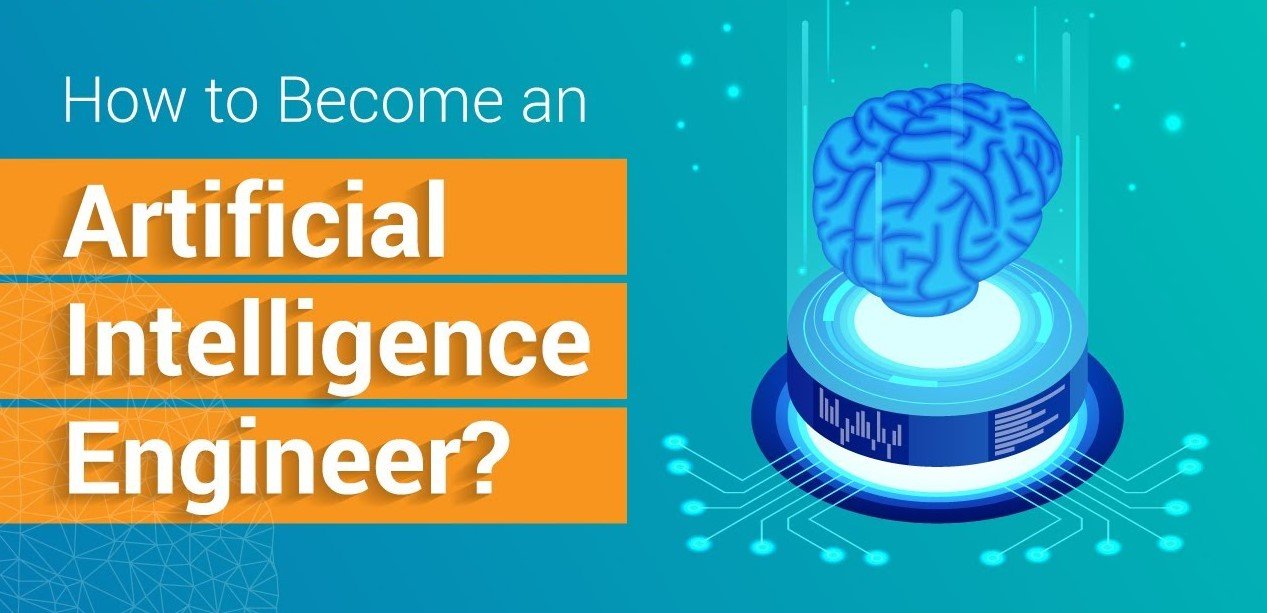
Artificial Intelligence (AI) is one of the most exciting fields in technology today, offering a wealth of opportunities for innovation and growth. As businesses across industries adopt AI to improve processes, enhance customer experience, and create smarter solutions, AI engineers have become highly sought-after professionals. In this article, we will explore how to become an AI engineer, covering the educational pathways, skills required, career prospects, and the steps you need to follow to start your journey.
An AI engineer is a professional who develops, implements, and manages artificial intelligence models and systems. These experts use machine learning, deep learning, and natural language processing to create algorithms that mimic human intelligence. AI engineers work with large datasets and sophisticated tools to develop models that can automate tasks, predict outcomes, and make decisions based on data.
As businesses strive to become more efficient and innovative, AI engineering has become a critical component of technological progress. AI engineers help design systems that can make intelligent decisions, drive automation, and improve overall business processes. From healthcare to finance, AI is transforming industries, and the demand for skilled professionals is continuously increasing.
1. Pursue a Bachelor's Degree in a Relevant Field
The first step to becoming an AI engineer is obtaining a bachelor's degree in a related field. Most AI engineers have a strong foundation in computer science, information technology, mathematics, or engineering. A bachelor's degree will provide you with the fundamental knowledge needed to understand algorithms, data structures, programming languages, and the basics of machine learning.
Courses such as linear algebra, probability and statistics, and calculus are essential for understanding the mathematical concepts behind AI models. In addition, students should gain experience with coding languages like Python, R, Java, and C++, which are frequently used in AI development.
2. Specialize in AI Through a Master's Degree
While a bachelor's degree provides a strong foundation, many AI engineers pursue a master's degree in artificial intelligence, data science, or machine learning to further specialize in the field. A master's program focuses on advanced topics like deep learning, neural networks, natural language processing (NLP), and robotics.
A specialized degree will also allow you to work on projects that provide hands-on experience with real-world AI challenges. Additionally, a master's degree can help you build a professional network that opens doors to internships and job opportunities in AI-focused companies.
3. Certifications in AI and Machine Learning
Earning AI certifications is a great way to boost your credibility and improve your skills in the field. Certifications such as Google's TensorFlow Developer Certificate, Microsoft's AI Engineer Associate, or IBM's AI Engineering Professional Certificate offer industry-recognized credentials that demonstrate your expertise in AI tools and technologies.
Online platforms like Coursera, edX, and Udacity offer specialized AI and machine learning certification programs. These programs provide flexible learning schedules, making it easier for professionals to acquire the skills they need while balancing work or other commitments.
To thrive as an AI engineer, you need a combination of technical, mathematical, and analytical skills. Here are the key skills required:
1. Proficiency in Programming Languages
AI engineers need strong coding skills. Python is the most commonly used programming language in AI development due to its simplicity and wide range of libraries (such as TensorFlow, PyTorch, and Keras). Additionally, knowledge of C++, Java, R, and JavaScript can be valuable, depending on the specific AI applications being developed.
2. Understanding of Machine Learning Algorithms
A deep understanding of machine learning (ML) algorithms is crucial for AI engineers. You should be familiar with supervised, unsupervised, and reinforcement learning models. ML algorithms such as decision trees, random forests, support vector machines, and k-nearest neighbors are used to build predictive models.
In addition to traditional ML algorithms, AI engineers should be proficient in deep learning frameworks like convolutional neural networks (CNNs), recurrent neural networks (RNNs), and generative adversarial networks (GANs).
3. Knowledge of Mathematics and Statistics
Mathematics forms the backbone of AI development. An AI engineer must have a strong command of linear algebra, calculus, probability, and statistics. These concepts are essential for developing accurate models and understanding how different algorithms function. You’ll need to be able to optimize models and fine-tune parameters for better performance.
4. Data Handling and Processing Skills
AI engineers work with large datasets, so it’s important to know how to handle, preprocess, and clean data. Skills in data mining, data analysis, and data visualization are crucial for making sense of the information and preparing it for use in AI models.
Additionally, knowledge of SQL and tools like Hadoop, Spark, and NoSQL databases is beneficial for managing large-scale datasets effectively.
5. Familiarity with AI and ML Frameworks
To implement AI models, engineers must be proficient in popular AI frameworks such as TensorFlow, Keras, PyTorch, and Theano. These frameworks provide pre-built components and libraries, allowing engineers to efficiently build and train AI models.
6. Problem-Solving and Analytical Thinking
AI engineers often work on complex problems that require critical thinking and a structured approach to finding solutions. Analytical skills help in identifying the right algorithms for specific use cases and fine-tuning them to achieve optimal results.
1. Gain Practical Experience Through Internships and Projects
Once you have a solid educational background, gaining practical experience is crucial. Internships with tech companies or research labs can provide hands-on experience in working with AI models, analyzing data, and developing AI-driven applications.
Moreover, working on open-source AI projects and participating in hackathons can help you apply your skills and learn from industry experts. Building a portfolio of projects will showcase your expertise and make you more attractive to potential employers.
2. Build a Strong Portfolio
A portfolio is essential for standing out in the competitive AI job market. It should include projects that demonstrate your ability to work with various machine learning models, datasets, and frameworks. Hosting your portfolio on GitHub or a personal website allows potential employers to see your work and evaluate your skills.
3. Stay Updated with Industry Trends
AI is an ever-evolving field, so staying updated with the latest trends, research papers, and tools is crucial. Follow AI blogs, attend conferences, and join professional organizations like the Association for the Advancement of Artificial Intelligence (AAAI) or IEEE Computer Society to remain informed about new advancements in AI.
4. Apply for AI Engineer Jobs
Once you've built your portfolio and gained practical experience, you can start applying for AI engineer positions. Job titles may vary depending on the company, but common roles include Machine Learning Engineer, Data Scientist, AI Developer, and AI Researcher. Tailor your resume to highlight your technical expertise, hands-on experience, and project accomplishments in AI development.
The career outlook for AI engineers is highly promising, with increasing demand in industries like healthcare, finance, automotive, manufacturing, and retail. AI engineers have the opportunity to work on groundbreaking projects such as self-driving cars, virtual assistants, automated trading systems, and personalized healthcare solutions.
Salaries for AI engineers are competitive, with entry-level positions starting at around $80,000 per year, and experienced professionals earning upwards of $150,000 annually. The demand for AI expertise is expected to grow as more organizations integrate AI into their operations.
 India Wins Champions Trophy 2025 – Celebrating Victory | Oprezo India
India Wins Champions Trophy 2025 – Celebrating Victory | Oprezo India
 Best CRM Software Development & Multi-Level Marketing Solutions in Delhi NCR | Oprezo India
Best CRM Software Development & Multi-Level Marketing Solutions in Delhi NCR | Oprezo India
 Best Digital Marketing & SEO Company & SMM Company in Delhi NCR | Oprezo India
Best Digital Marketing & SEO Company & SMM Company in Delhi NCR | Oprezo India
 Web Development Services in Delhi | Oprezo India
Web Development Services in Delhi | Oprezo India